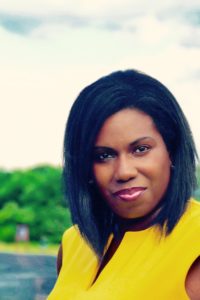
Shelley Leaphart-Williams
If you ask Shelley Leaphart-Williams what drives her seven-year run as a Mental Health First Aid Instructor, she’ll answer with one simple word: hope.
In the United States, someone dies by suicide every 12.3 minutes, according to the American Foundation for Suicide Prevention. Parents, children, friends and colleagues.
Shelley, a therapist by trade, distinctly recalls asking her staff a life-saving question nearly a decade ago. “Anyone suicidal?” she said openly during a meeting.
When everyone replied “no,” she felt relieved. However, minutes later in her office, she received news that her 22-year-old nephew died by suicide.
“Nothing prepares you for that type of phone call, even working in mental health,” she said of the moment that changed her life. “For me, I felt that education was the key.”
She became a certified Mental Health First Aid Instructor in Philadelphia and when she needed a training partner to help facilitate sessions, her husband followed suit.
“I couldn’t do it by myself,” she said. “It was too much for an eight-hour day.”
Together, the Williams’ lead trainings for the Adult curriculum Youth curriculum and the Higher Education module through Shelley’s suicide prevention non-profit, LifeSavers U.
On any given day, you can find the duo on the campuses of Kutztown and Duquesne Universities training resident advisors and faculty how to appropriately respond to college students experiencing mental health issues like depression, anxiety and substance use.
One of Shelley’s goals is to partner with historically black colleges and universities (HBCUs) and train freshmen in Mental Health First Aid. As an HBCU alumnus who’s struggled with depression, Shelley recognizes the unique challenges that minority students face navigating a new environment.
Outside of higher education, Shelley enjoys offering Mental Health First Aid certification classes to community members in faith-based settings.
“One church did a four-week Mental Health First Aid program as a part of their bible study, and that class was full,” she said. “People were trying to get in, and I had to tell them, listen, we have a limit of 30.”
Shelley draws from her lived experience with mental illness to relate directly to class participants, many of whom find avenues for help themselves during the course.
“We’re all one step away from having a mental health crisis,” she said. “I know what it’s like personally to deal with depression, having thoughts of wanting to hurt yourself. I recently just came out of a battle with breast cancer and finishing chemo. I know what it’s like to feel that hopelessness but still have to overcome and persevere.”
To any Instructors looking for some tips, Shelley has some advice: